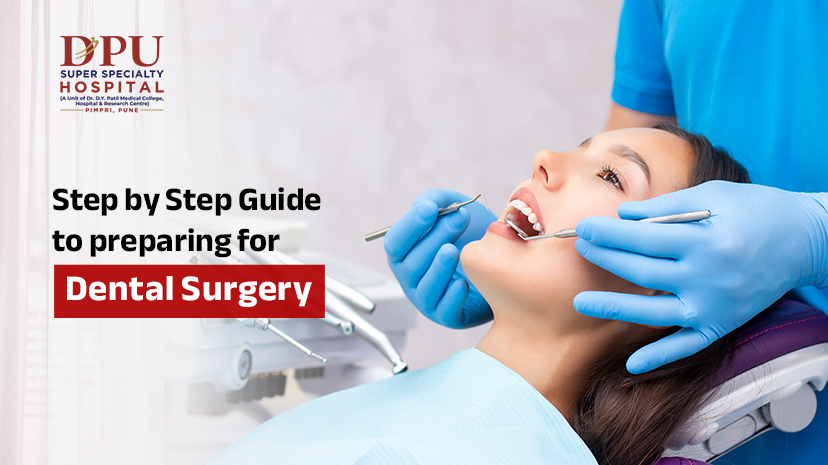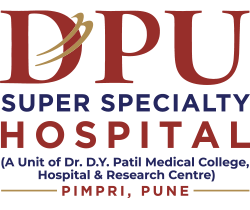Step-by-Step Guide to Preparing for Dental Surgery

Dental surgery can seem a bit frightening, but with the right preparation, you can ensure a smoother and more comfortable experience. Whether you're undergoing wisdom teeth removal, dental implants, or another type of dental surgery, knowing the steps involved and observing necessary precautions is key to a successful outcome. This guide walks you through essential steps to prepare for your procedure.
1. Understanding Your Dental Surgery: What to Expect
There are several kinds of dental surgeries, each serving different purposes. Below, we’ll break down a few common procedures and what you can expect during each:
- Wisdom Teeth Extraction: This procedure involves removing one or more of the third molars (wisdom teeth), which may be impacted or cause discomfort. Typically done under local anesthesia or sedation, the procedure is straightforward, with recovery taking a few days to a week.
- Dental Implants: If you’re missing a tooth, a dental implant is a solution that involves placing a titanium post into the jawbone. This post serves as a root for a crown or bridge. The procedure requires careful planning and can take several months for complete healing and integration of the implant.
- Root Canal Surgery: A root canal treatment is needed when the tooth pulp becomes infected. The dentist will clean the infection, seal the tooth, and may place a crown over it. This procedure often involves local anesthesia and may require one or more visits.
- Gum Surgery: Sometimes, gum disease may require surgery to restore healthy tissue. Whether it's flap surgery or gum grafting, your dentist will explain the details specific to your case.
Before the procedure, your dentist will provide you with instructions tailored to your surgery, ensuring you're completely aware of the process ahead.
2. The Role of Anesthesia in Dental Surgery
Anesthesia plays a vital role in making dental surgeries more comfortable and pain-free. Understanding the types of anesthesia used can help you feel more at ease:
- Local Anesthesia: This is the most frequently performed type of dental procedure, numbing only the area around the tooth or gums where the surgery is performed. You’ll be awake, but won't experience any pain.
- Sedation: For more invasive surgeries, you may be given a sedative through oral medication or IV. This helps you relax during the procedure. You'll be awake but feel calm and unaware of the surgery happening.
- General Anesthesia: In certain cases, such as more complex surgeries or for patients with severe anxiety, general anesthesia may be used. This will keep you fully asleep throughout the procedure.
Your dentist will determine the best type of anesthesia based on the complexity of your surgery and your personal preferences. Be sure to discuss any concerns or questions you have with your dentist beforehand.
3. The Role of Hydration: Why Staying Hydrated Is Key Before Dental Surgery
Hydration plays a crucial role in both your comfort and recovery after dental surgery. Here's why:
- Anesthesia and Hydration: Anesthesia can have effects on your body, and staying hydrated helps your body metabolize the anesthetic more efficiently. It also helps prevent dry mouth and improves circulation.
- Recovery Process: Adequate hydration ensures your body can heal more quickly after surgery. Water supports the natural healing processes, helps flush out toxins, and prevents complications like swelling or dry socket after extractions.
- Avoiding Dehydration: Dehydration can lead to dizziness, nausea, and slower recovery. For these reasons, it’s important to drink plenty of water in the days leading up to your surgery. Avoid drinking too much caffeine or alcohol, as they can contribute to dehydration.
As a general guideline, you may be instructed not to eat or drink anything for several hours before surgery, especially if sedation or general anesthesia is involved. However, maintaining hydration in the day’s prior is important.
4. Dental Hygiene Precautions: How to Protect Your Teeth and Gums
Proper dental hygiene is essential, both before and after dental surgery, to secure the best possible result. Here are some tips for protecting your teeth and gums:
- Before Surgery: Maintain your regular oral hygiene routine leading up to the surgery, but avoid brushing the day of the surgery if you’re instructed to fast. If your surgery is in the morning, brush your teeth before going to bed the night before.
- After Surgery: Your dentist will likely recommend gentle brushing and flossing after surgery, avoiding the surgery site to prevent irritation. Swishing with salt water or using prescribed mouthwashes may be advised to keep the area clean.
- Avoid Smoking and Alcohol: Both smoking and alcohol can inhibit healing and increase the risk of infection. If possible, stop smoking well before your surgery, and avoid alcohol for a few days before and after.
- Use a Soft-Bristled Toothbrush: After surgery, your gums and teeth may be sensitive. A soft-bristled toothbrush is gentle on your teeth and gums and reduces irritation during the healing process.
Conclusion
Dental surgery doesn’t have to be a tough experience. With the right preparation, you can ensure that the process is as smooth and stress-free as possible. Understanding the procedure, the role of anesthesia, the importance of staying hydrated, and maintaining good dental hygiene are key to a successful surgery and a quick recovery. Be sure to follow your dentist’s instructions carefully and feel confident that you are taking the necessary steps for a positive outcome.








